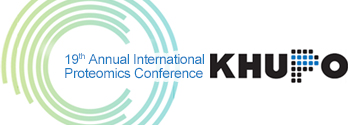Plenary Speakers
Home
> Program > Plenary Speakers

- Code / Date
- PL-1 / Mar 28 (Thu) 10:40-11:20
- Speaker
- Stephen R Pennington CV
- Affiliation
- University College Dublin
- Title
- Development and Delivery Advanced Protein Biomarker Tests for an Era of Precision Medicine
- Career
- Professor Stephen R Pennington is currently the President of HUPO. He received his PhD degree in the Department of Biochemistry, University of Cambridge and was a lecturer in Department of Human Anatomy and Cell Biology, University of Liverpool. Since 2003, he is a professor of Proteomics in the UCD Conway Institute, School of Medicine, University College Dublin. Dr. Pennington spent much of his research career using mass spectrometry to measure and characterize proteins. Dr. Pennington has given over 200 invited presentations at international events, published over 80 scientific papers as well as editing and contributing to several books including editing one of the first books on Proteomics. He is on the editorial board of several journals including in a more senior capacity for 'Proteomics' and the 'Journal of Proteomics'. He is a committee member of European Proteomics. His research is focused on bringing protein biomarker research endeavours to clinical utility and value. His research group is currently actively engaged in 'Biomarker Discovery and Development'.
- Abstract
-

- Code / Date
- PL-2 / Mar 28 (Thu) 17:00-17:40
- Speaker
- David E. James CV
- Affiliation
- University of Sydney
- Title
- Global redox proteome and phosphoproteome analysis reveals novel mode of Akt regulation
- Career
- Dr. James has brought stellar research credentials to the fields of metabolism and proteome research including insulin resistance, multi-omics research, protein and mechanisms, diabetes, and obesity. He has authored over 200 research papers and 25 invited reviews. He has also won several awards including the Glaxo Wellcome Medal for Medical Research and the Kellion medal for outstanding contributions to diabetes research. He currently holds the Leonard P Ullmann Chair in Molecular Systems Biology and the Domain Leader for Biology at the Charles Perkins Centre at the University of Sydney. After earning a Ph.D in Biochemistry/Physiology from Garvan Institute/University of New South Wales in 1985, he was at the Boston University (1985-1988), held an Assistant Professor at the Washington University (1988-1993), Associate Director and National Health and Medical Research Council (NHMRC) Principal Research Fellow at the University of Queensland (1993-2001), and acted as a Director and NHMRC Senior Principal Research Fellow at the Garvan Institute of Medical Research (2002-2014).
- Abstract
-

- Code / Date
- PL-3 / Mar 29 (Fri) 10:40-11:20
- Speaker
- Harald Mischak CV
- Affiliation
- Mosaiques Diagnostics
- Title
- Application of proteomics in clinical diagnosis and patient management: from discovery to actual routine implementation
- Career
- Dr. Harald Mischak is currently a professor in University of Glasgow, UK and has been engaging researches in the field of clinical proteomics. He is also a founder of Mosaiques Diagnostics in Germany. His expertise is to discover peptide markers and develop multi-marker panel for disease diagnosis and precision medicine. Particularly, he has developed and has been implementing the CKD273, a prognostic enrichment biomarker panel composed of 273 urinary peptides, to be used in combination with current measures (i.e., albuminuria, serum creatinine) in early phase clinical trials in diabetic kidney disease (DKD) to identify patients with early stage disease who may be more likely to progress. Notably, the CKD273 is thus far the firstly FDA-approved multi-peptide marker panel.
- Abstract
-

- Code / Date
- PL-4 / Mar 29 (Fri) 17:00-17:40
- Speaker
- Jong Shin Yoo CV
- Affiliation
- Korea Basic Science Institute
- Title
- Glycoproteomics and Clinical Applications by Mass Spectrometry
- Career
- Dr. Jong Shin Yoo is a principal investigator of the Biomedical Omics Research Group at Korea Basic Science Institute and an adjunct professor in the Graduate School of Analytical Science and Technology at Chungnam National University in Daejeon, Korea. His research is focused on glycoproteomics based on tandem mass spectrometry including the development of analytical method to characterize the N- and O–linked glycoproteins as cancer biomarkers. He is also interested in the integration of proteomics and genomics data to study the mechanisms of cancer metastasis and its clinical applications.
- Abstract
-

Room 404, Nakseongdae R&D Center, 38 Nakseongdae-ro, Gwanak-gu, Seoul, 08790, Korea
Phone: (+82)2–393–8328 E-mail : admin@khupo.org Homepage : http://www.khupo.org
COPYRIGHT ⓒ 2019 KHUPO. ALL RIGHTS RESERVED.
